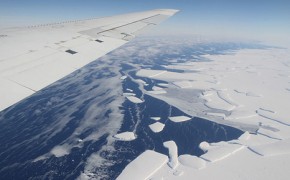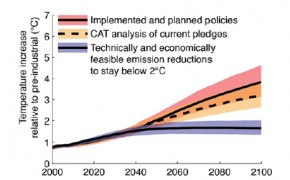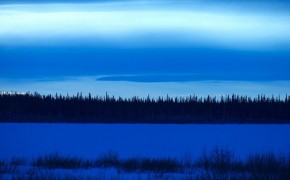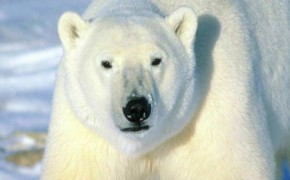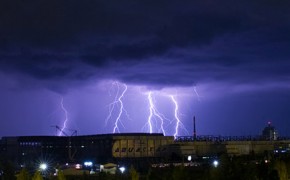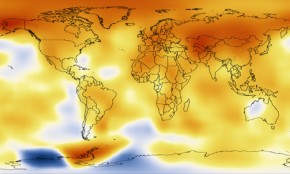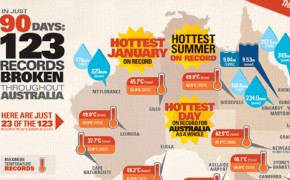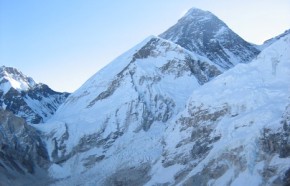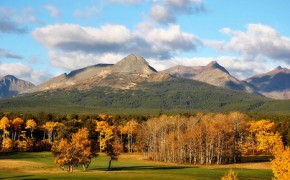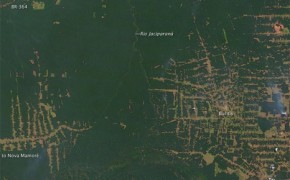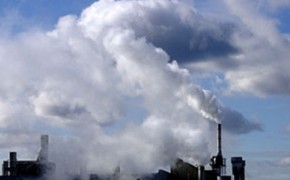Research
UN drought chief: ‘famine dehumanizes us, but it is not a fate’
Writing for RTCC on Desertification Day 2013, UNCCD Executive Secretary Luc Gnacadja says it’s time to address this increasingly serious issue
Climate change threatens future of ‘safe species’ – IUCN
Work by 100 scientists over five years reveal that more than half the species studied are in danger because of a warming planet
Scientists warn earth cooling proposals are no climate “silver bullet”
Geoengineering the world out of dangerous climate change without cutting carbon emissions sounds an attractive idea – but will it work?
Global warming set to approach 4C by 2100
Current emissions and mitigation policies have left the world on a trajectory to warm by 4C by 2100, a new report by Climate Action Tracker warns
Climate change could mean once a century floods every 10 years
New study finds some parts of the world will face frequent catastrophic floods by 2100 while other regions could get less hazardous
Canada tar sands threatening biodiversity of Arctic circle wilderness
Mackenzie River Basin at great risk from climate change and a catastrophic oil spill according to a panel of nine Canadian, American and British scientists
Arctic warming linked to spread of diseases
Arctic compared to ‘Heathrow airport’ in terms of bird, seal and other migration patterns and linked to ways that disease is spread
Corals can take decades to recover from climate impacts – report
Coral can recover from periodic warming of the oceans, but the bad news is it might take too long
Stormy weather set to increase due to climate change
Delegates at European Conference on Severe Storms hear more intense thunderstorms combined with damaging winds are expected to occur
Rate of ocean warming greater than previous estimates – study
Report in Geophysical Research Letters suggests oceans are absorbing far more heat than previously realised
Plant growth increases due to rise in carbon dioxide levels – study
Australian scientists report CO2 fertilization effect has led to new foliage growth in arid regions of planet
Manhattan’s climate change “killing season” to grow
New research predicts a surge in heat-related deaths in epicentre of New York City
New study confirms science consensus on climate change
Analysis of thousands of scientific articles on climate change finds almost unanimous agreement that most of the recent warming results from human activities
Scientists report glacial retreat in Mount Everest region
Nepal’s glaciers and USA’s Rocky Mountains have lost significant amounts of their snow cover since 1980, with climate change thought partly responsible
Online game launched to map world’s fossil fuel power plants
Arizona University project aims to crowd-source locations of 30,000 fossil fuel power plants and measure their greenhouse emissions
NASA moon experiment uncovers ‘green steel’
Experiment to produce oxygen on the moon accidentally provides clues to a new technique that could slash emissions from steel production
Global biodiversity levels face climate squeeze by 2080
Fast action to cut carbon emissions needed to provide time for species to adapt to conditions which climate change will bring to their habitats
Amazon deforestation could hurt Brazil’s farmers
Widespread loss of forest could affect rainfall in key agricultural regions of Brazil, hitting beef and soya productivity
IPCC models underestimate role of CO2 in warming
New data suggests Earth’s climate may be more sensitive to CO2 than previous estimates have suggested
Pollution helps clouds to slow global warming
Clouds are sending more sunlight back out into space because pollution from human activities is making them more reflective


